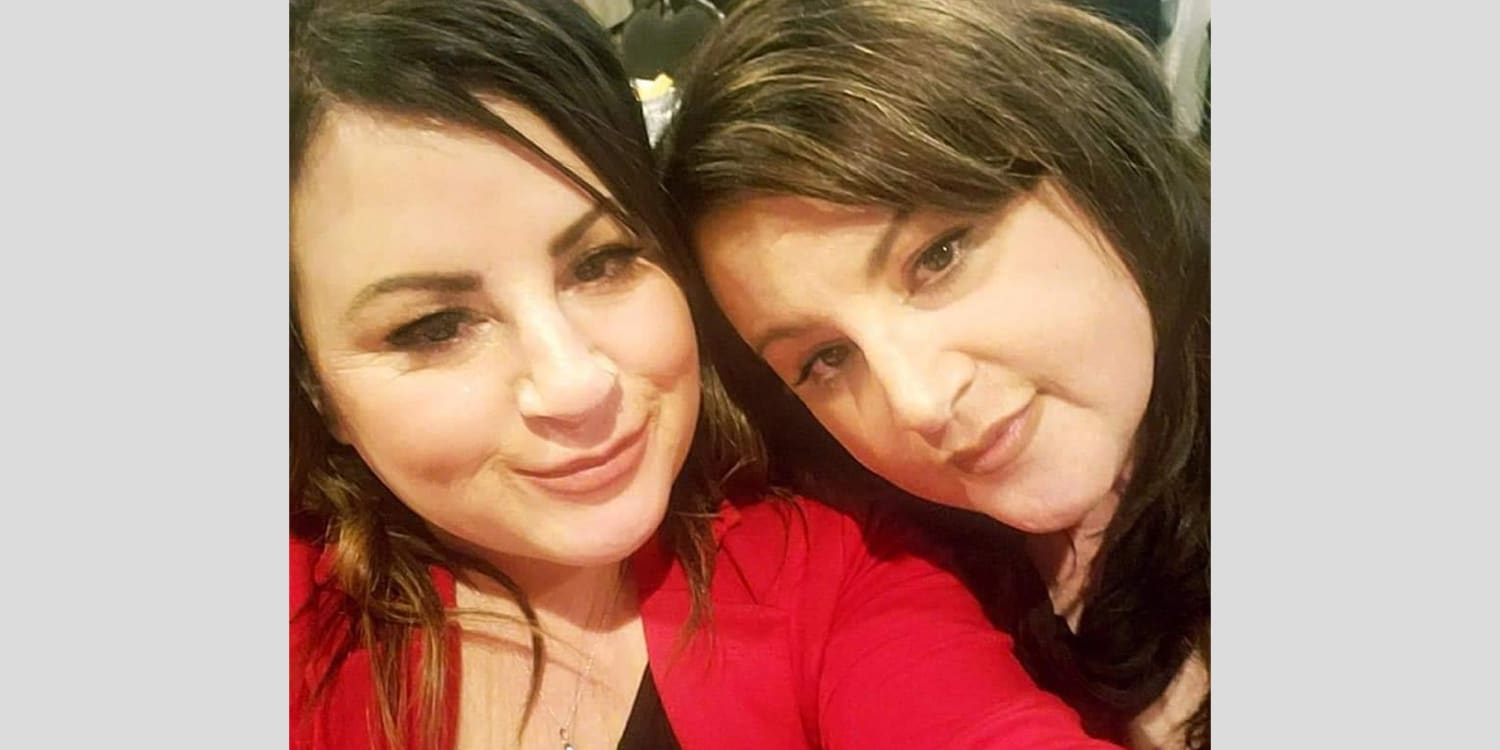Cynthia Racanati couldn’t imagine she’d be returning to work without her sister.
Cynthia, 47, and her identical twin sister Michele had been living together and working at the same hospital in Oelwein, Iowa when they each contracted Covid-19 in early November — first Cynthia with only mild symptoms and then Michele with a more severe case.
“You could tell that she was really sick,” Cynthia told NBC News. “Sometimes, she’d be sleeping all day. She didn’t want to get up, she wouldn’t feel good.”
The sisters, both medical assistants working throughout the pandemic, would go on to have very different outcomes with the virus. By the time Cynthia was ready to return to her job at the hospital’s urgent care unit, Michele’s condition was worsening and she was diagnosed with pneumonia.
Even then, Michele, who worked in family medicine and was a mother of three, did what she always did, Cynthia said.
“She wasn’t worried about herself when she was actually sick,” Cynthia said of her sister who, even during her sickness, worried more about their friends. “She was more worried, even at the end, about them and maybe giving it to someone else than she was about herself.”
This, along with the way she made patients laugh, her love of animals, and her LGBTQ advocacy would be what Cynthia would remember her sister for.
As Michele’s breathing grew more difficult, Cynthia decided to take her sister to the ER. By then, Michele could barely walk and had to be put in a wheelchair. Within hours, she was put onto a ventilator.
“And it was there that they called me and said that she, they were sending her to the University of Iowa for the ECMO treatment, because they couldn’t get her oxygen levels to stabilize, that it had dipped down really low at one point and they didn’t know why,” Cynthia said.
After being transferred to the new hospital at the University of Iowa, tests would reveal Michele developed blood clots in her lungs and brain, said Cynthia. At that time, Michele was sedated and eventually declared brain-dead.
“I didn’t think that it would go this way. I thought she would start getting better. And she didn’t,” Cynthia said of the “shocking” diagnoses. After more tests and speaking with about a dozen doctors, it was clear Michele’s condition wasn’t reversible. “It’s just a ventilator that was keeping her alive at that point,” Cynthia said.
Ultimately, Michele would be taken off life support, her sister overcome with grief and survivor’s guilt.
Her sister, too, felt a sense of guilt in the days leading up to her death, Cynthia said.
“She said if she could go back and do it over again, that maybe some of the things that we had done, with friends, she said maybe we shouldn’t have done those things,” Cynthia said.
Now, Cynthia plans on getting the vaccine, partly because her sister so adamantly wanted to take it.
“She would have taken the vaccine, and I will take it too in her honor,” Cynthia said.
Source: | This article originally belongs to Nbcnews.com











